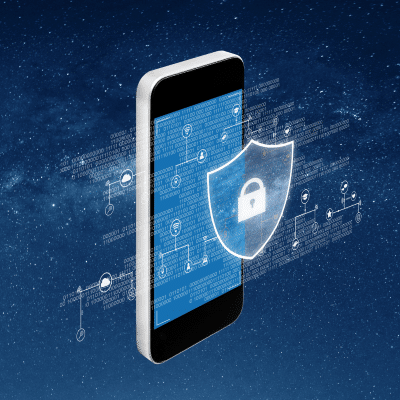|
Getting your Trinity Audio player ready...
|

In a world where our smartphones are practically an extension of ourselves, mobile phone safety is more important than ever. We store our lives in these devices, from cherished memories to sensitive data. So, let’s chat about how to protect your personal information, privacy, and digital well-being in a way that’s as easy as texting your best friend.
Why Mobile Phone Safety is a Big Deal
Imagine your phone as a vault, holding everything from your embarrassing selfies to your bank details. That’s exactly why mobile phone safety is no joke. Here’s why it matters:
1. Guarding Your Info
Your phone knows your deepest secrets, like your passwords and credit card numbers. Let’s not make it easy for identity thieves, shall we?
2. Privacy Matters
We’ve all seen those eerie ads that seem to know our thoughts. Protecting your privacy means keeping your personal stuff private, not letting advertisers peek into your life.
3. Healthy Digital Habits
Spending too much time glued to your screen? It’s not just about safety but also your mental well-being.
Hands-On Tips for Mobile Phone Safety
Let’s get to the good stuff – practical tips to keep your phone and data safe. Think of these as your trusty sidekicks in the battle for mobile security:
1. Lock it Down
Start with the basics. Lock your phone with a PIN, password, or fingerprint. It’s like having a bouncer for your digital party.
2. Stay Updated
Those software updates? They aren’t just for adding emojis. They patch up security holes, too. Keep your phone and apps up to date.
3. App Permissions
Have you ever thought of Apps asking for access to your camera, mic, and location? Be the gatekeeper and grant what’s necessary.
4. Double the Security
Enable Two-Factor Authentication (2FA) wherever you can. It’s like having a secret handshake to get into your accounts.
5. Wi-Fi Wisdom
Use strong Wi-Fi passwords at home, and avoid connecting to shady public networks. If you must, use a VPN for a secure connection.
6. Encrypt Everything
Activate device encryption – it’s like putting your data in a super-secret code that only your phone can understand.
7. App Detective
Download apps only from trusted app stores. Dodgy third-party sources can be a playground for malware.
8. Backup Dance
Regularly back up your data to the cloud or an external device. It’s like having a digital safety net.
9. Phishing Radar
Keep your spidey senses tingling for phishing attempts. Don’t click on weird links, and always verify suspicious messages.
10. Time for a Digital Detox
Screen time can be addictive. Set some limits and free up your time for non-digital adventures. You should also consider some asset procurement if you want to use tech for all your business ventures.
11. App Cleanup Party
It’s time for a digital spring cleaning. Delete apps you don’t use – they’re not just taking up space; they can be risky, too.
12. Anti-Malware
Consider installing a trustworthy anti-malware app. Think of it as your digital superhero, protecting you from the bad guys.
Conclusion
Ultimately, mobile phone safety is all about taking control of your digital life. It’s not about being paranoid but being smart. Your smartphone should be your trusty sidekick, not a liability. So, follow these tips, stay informed about the latest threats, and keep your digital world safe and sound. Happy texting, calling, and swiping!
Learn more about TWINTEL or call us at (888) 428-0599 or schedule a meeting today.
Mark Johnson is a passionate technology professional with over 11 years of experience in the Managed Services IT space and a wide variety of industry-leading certifications. Mark’s extensive Managed IT experience and aptitude for quickly learning and adapting to new technologies has equipped him to offer valuable insight across a broad spectrum of business technology solutions.
